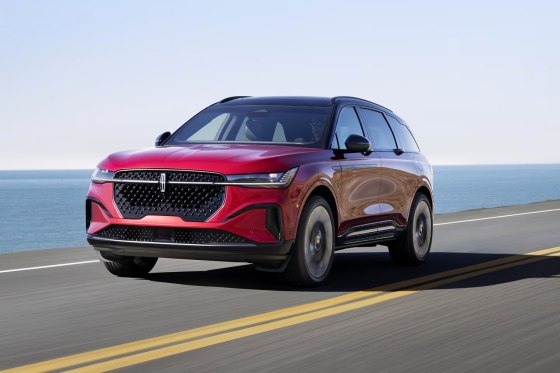
DETROIT A tiny number of U.S. cars are impacted by President Donald Trump’s decision to put 10% extra tariffs on imports from China this week. However, those tariffs also affect auto parts, which might raise consumer pricing for already high-priced vehicles.
The U.S. International Trade Commission estimates that the United States has imported between $15.4 billion and over $17.5 billion worth of transportation goods from China in recent years, including $9 billion to $10 billion in auto parts and accessories for cars, tractors, and other special purpose vehicles.
The Ford Lincoln Nautilus and General Motors Buick Envision will be the vehicles most affected. Of the 88,515 Chinese-made cars sold in the United States last year, 83,884 (95%) were crossovers.
From a volume perspective, GM and Ford are primarily affected, according to Jeff Schuster, vice president of automotive research at GlobalData. Although it can be somewhat subdued, our domestic folks bear the brunt of this, at least when it comes to full automobiles.
Far fewer automobiles are imported into the United States by other automakers, such Volvo, which is owned by China’s Geely and its electric vehicle spin-off Polestar. To cut down on the quantity of cars imported from China, they have also modified their production schedules. Given that the Biden administration imposed a 100% tariff on Chinese EV cars last year, this is particularly true for EVs.
Regarding possible adjustments to production or pricing for their cars built in China, Ford and GM spokespeople declined to comment. Polestar and Volvo did not reply.
According to GlobalData, just 0.6% of the approximately 16 million new cars sold in the United States last year were produced for buyers in China. That is comparable to imports from Slovakia, Sweden, and the United Kingdom.
The American auto industry would be significantly more affected by tariffs on Canada or Mexico, which, according to GlobalData, accounted for 23.4% of U.S. sales last year.
Although there aren’t many cars imported from China, the US International Trade Commission estimates that auto parts imports amount to $15–20 billion annually, and China plays a significant role in the supply chain for batteries and storage, particularly LFP batteries used in utility-scale energy storage, according to an investment note released on Sunday by Goldman Sachs analyst Mark Delaney.
Since EV adoption is slower than anticipated, it is uncertain how large of an effect tariffs may have on batteries or raw materials.
However, according to data from the National Highway Traffic Safety Administration, a significant number of components used in an electric vehicle in the United States come from China.These consist of the following: Nissan Ariya EV (40%); Toyota bZ4x EV (20%) and RAV4 PHEV (20%); Hyundai Kona EV (50%) and Hyundai Ioniq 5 N (30%); Kia EV9 (35%) and Niro Electric (25%); and Volkswagen ID Buzz EV (25%).
According to Mike Jackson, MEMA Original Equipment Suppliers’ executive director of strategy and research, the car organization is worried about tariffs in general. He claimed that although the 10% additional duty on China has less of an effect than those in North America, it does raise prices.
It’s difficult. On the fringes of the Federal Reserve Bank of Chicago sauto conference in Detroit on Wednesday, Jackson told CNBC that it signifies a greater expense, and that expense would have to be borne. Undoubtedly, China still produces incredibly useful stuff. They have been optimized for a variety of factors, including electronics.
It remains to be seen if manufacturers will choose to alter sourcing, pass cost hikes on to customers, or adopt other measures.
Sales may suffer if the costs are passed on to customers. Cox Automotive claims that new car prices are still historically high at almost $50,000.
Stephanie Brinley, principal automotive analyst at S&P Global Mobility, stated that there isn’t a single product from China that is subject to this tariff that makes one go, “Oh no, this is the thing that’s going to mess everything up, but they will drive up costs.” It contributes to a larger problem, a larger pricing issue.
According to Brinley, such price hikes might have an effect on the 16.2 million new cars sold in the US, according to S&P Global Mobility before any tariffs were imposed.
More from CNBC:
-
Private payrolls expanded by 183,000 in January, topping expectations, ADP says
-
National Women s Soccer League agrees to $5 million settlement over past mistreatment of players
-
Deranged’ and ‘problematic’: Bipartisan lawmakers bash Trump s Gaza proposal
